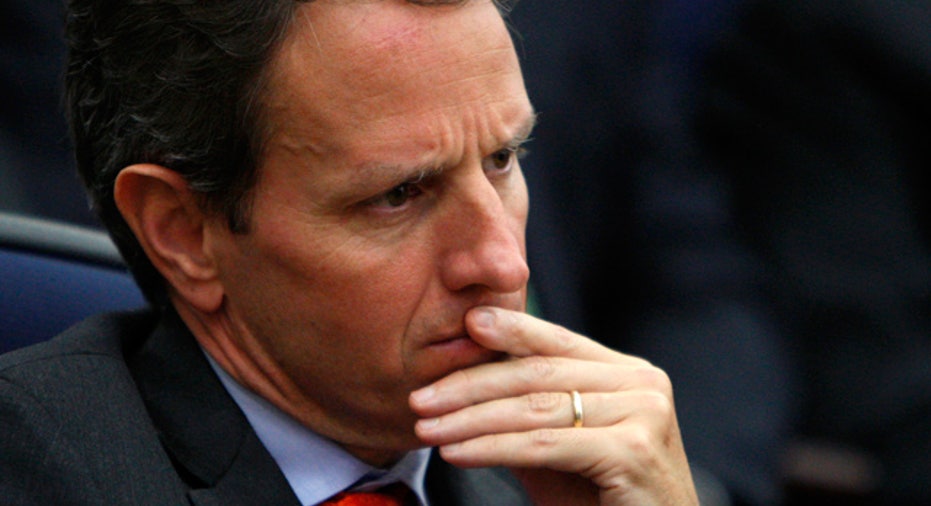Geithner Urges Debt Limit Action

Treasury Secretary Timothy Geithner spoke Tuesday at the Harvard Club in New York, reiterating the importance of taking action in raising the debt ceiling, and outlining the Obama Administration’s plan to reduce deficits.
The remarks were delivered just one day after the U.S. officially reached its debt ceiling of $14.3 trillion. Congress has until August 2 to increase the limit and avoid default, and Geithner cautioned against lawmakers’ use of the debt limit as a political tool to force legislative action on fiscal policy.
“What we can’t do is set up a dynamic where people on any side of the aisle use this as a chance to try to legislate a particular political agenda,” Geithner said in a question and answer session following his remarks.
Lawmakers continue to wrestle with the issue of a debt ceiling hike. House Speaker John Boehner has said publicly that any agreement to lift the debt limit should be accompanied by spending cuts matching the amount of the ceiling's increase. In his prepared remarks, Geithner emphasized the separation between the debt limit and the debates over fiscal responsibility.
"The debt limit, of course, relates only to commitments we have made in the past,” Geithner said. “Rather than debating whether we should pay our past bills, whether default would in fact be so bad; rather than designing schemes that are designed to allow us to continue to make interest payments by breaking our commitments to seniors and veterans; we should be working together to narrow our differences on how to solve the causes of our future deficits."
Geithner said he was “very confident in the economy,” but rejected the notion put forth by Republican leaders that the country can cut its debts by spending reductions alone.
“It is not possible to offer people the choice of trying to do this just on spending that they can’t see and don’t believe in. It’s not a responsible alternative,” he said.
Geithner went on to say that if Republicans are not willing to discuss raising taxes, or new revenues, then there could be less action taken to reduce deficits. He explained that if Republicans were “unwilling to put revenues on the table then we’re going to be able to do less upfront. That’s the basic reality of the situation.”
The Treasury Secretary said he is optimistic that both sides can come together to cut deficits, saying that the political “conversation” has already turned from whether or not Congress should act to cut spending to how it will act, as both sides have “joined in embracing the imperative, talking about the same basic magnitude of reductions we need.”
Apart from the country’s fiscal challenges, Geithner commented briefly on the recent leadership shakeup at the International Monetary Fund in the wake of current IMF head Dominique Strauss-Kline’s arrest this weekend in New York on charges of sexual assault. Geithner noted that Strauss Kline was clearly “not in a position to run the IMF” and called interim managing director John Lipsky “a very capable person.”
“A lot of stuff is going on in the world—a lot going on in Europe in particular and you want the IMF to have the capacity to be helpful in that context, and I’m very confident they can continue to play a very constructive role,” Geithner said.



















